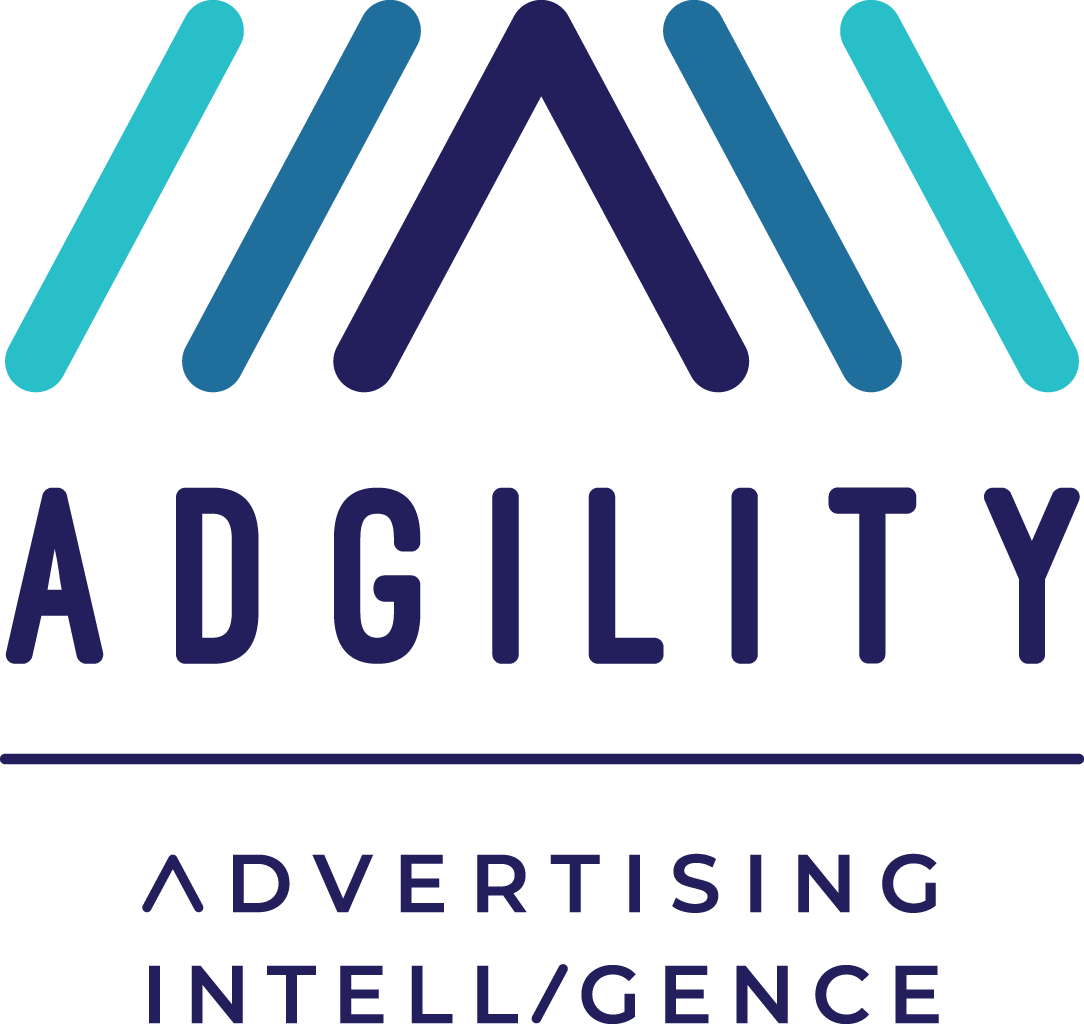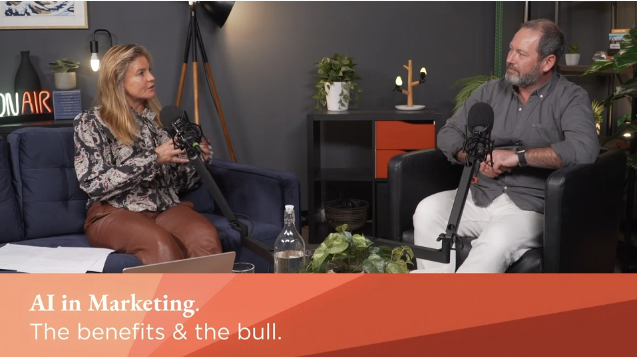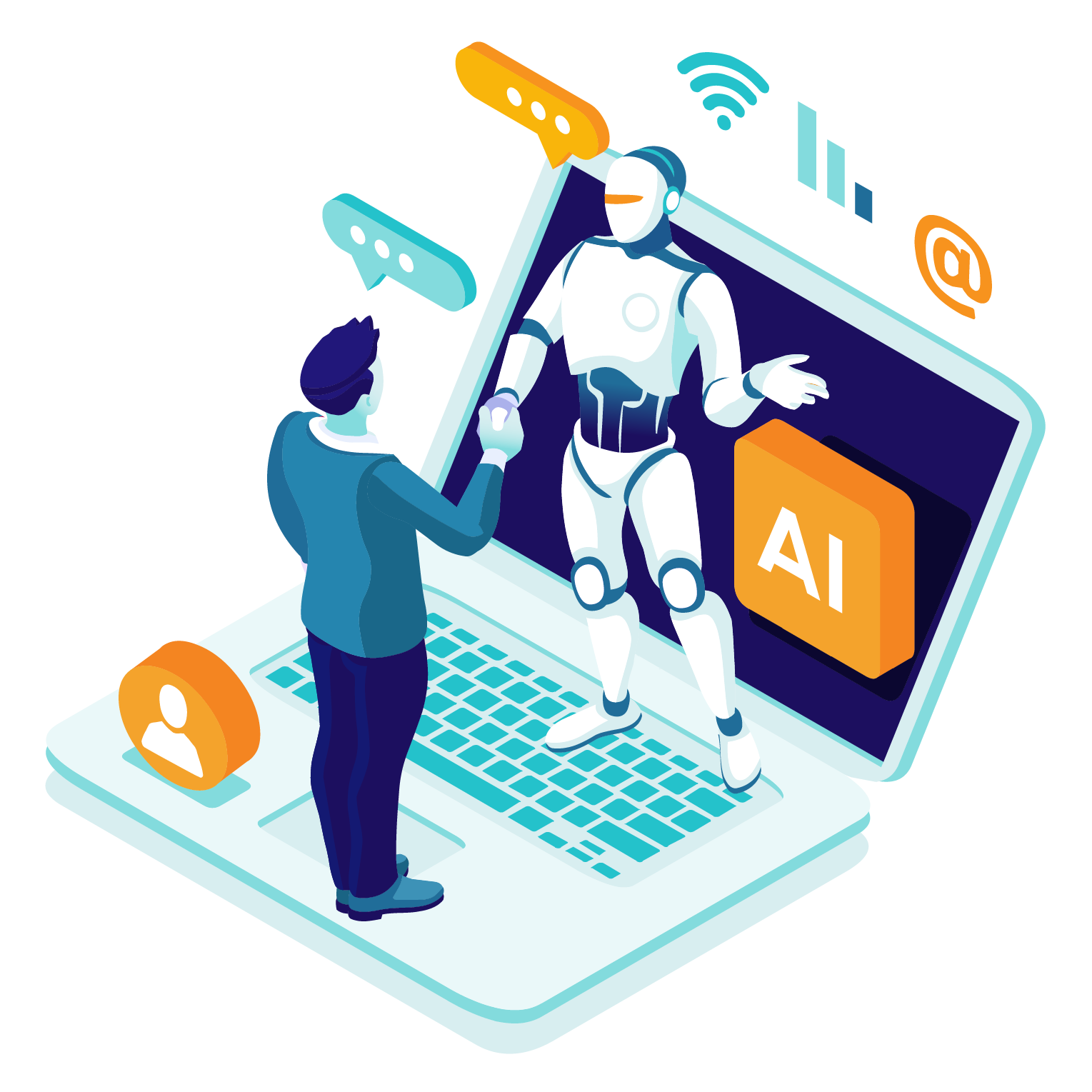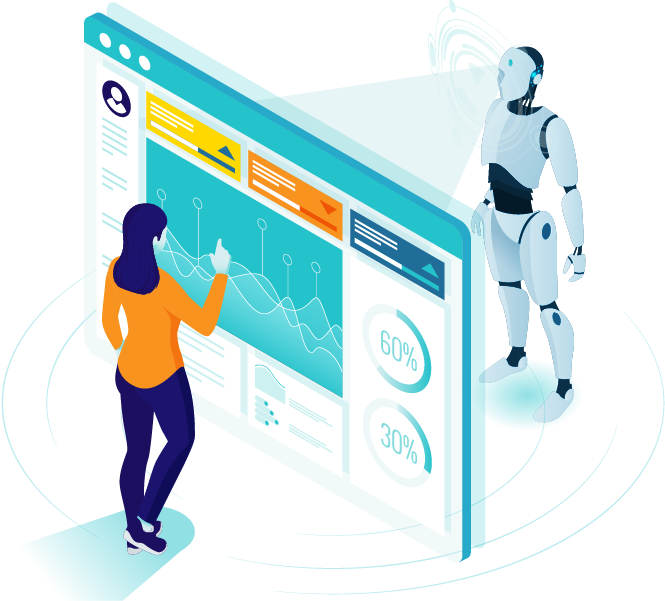This podcast explores the holistic benefits, truths and myths behind AI in advertising and marketing. And the million dollar question: What is AI's role and can it really help marketers elevate their performance and become 'sales and marketing superstars?!'
In this podcast, hosted by Leah Daly, Media Director at Adgility, and David Flanagan, Director of Content & Strategy at Producible, we dive into the realm of AI in marketing and advertising, providing deep insights into AI's transformative role, its practical applications, and common misconceptions.
As AI becomes more integrated into media strategies, we emphasise its role in simplifying complex processes and encouraging smarter media investments that ultimately drive higher ROAS - possibly even helping marketers become better, faster and more efficient versions of themselves - or what we call 'marketing superstars..!!'
If you’ve got time, we’d love you to kick back, grab a coffee, and listen to the full podcast by clicking the image below. Short on time? No worries! We've got you covered with a quick and entertaining summary of the podcast below.
AI in Marketing & Advertising: Benefits, Myths & A Real Life Success Story
Setting the Stage: AI in Marketing & Advertising
AI has emerged as an exciting and often misunderstood tool in advertising. Leah describes AI in marketing as akin to having a super-efficient personal assistant, continuously working to optimise campaigns. David humorously adds that AI sometimes feels like an enthusiastic teenager, eager yet not always fully reliable without human oversight! This human-AI partnership is fundamental in successfully deploying AI in advertising.
Understanding AI & Machine Learning
David points out that AI, machine learning, and automation are often used interchangeably, though they represent different concepts. Leah clarifies that machine learning is the foundation of AI - where systems identify patterns within vast datasets to make informed decisions. AI evolves from machine learning when automation and predictive capabilities become sophisticated enough to significantly enhance advertising strategies and deliver preferred outcomes faster and more cost efficiently.
The Role of Data in AI
Data is the cornerstone of effective AI-driven marketing. According to Leah, high-quality, real-time data collection is crucial. Platforms like Meta, TikTok, and programmatic demand side platforms like Google's Display and Video 360, leverage big data to analyse consumer habits and predict outcomes. David stresses that data must be accurate, clean, and securely managed, particularly as privacy concerns grow.
Machine Learning to Predictive Audiences
Machine learning is the first significant step toward predictive analytics. Leah notes that as algorithms analyse data trends, marketers can predict outcomes more accurately. For example, e-commerce brands seeking cost reductions in customer acquisition can rely on machine learning algorithms to identify where budgets should shift to optimise results.
Deep Learning in AI
Leah explains that advanced machine learning transitions into deep learning, utilising complex artificial neural networks to decipher more intricate data patterns. Deep learning enables marketers to assess multiple media channels simultaneously - connected TV, digital out-of-home, search, and social media - to determine the optimal media mix for maximum ROI.
Practical Application and Myths of AI-Fuelled Advertising
Despite its powerful capabilities, AI is not simply a plug-and-play solution that most marketers have been lead to believe. David highlights common misconceptions, such as the belief that AI is instantly effective upon activation or that it’s a "set and forget" technology. Leah emphasises that successful AI deployment requires continuous learning, experimentation, and human oversight to refine and optimise outcomes.
Creative Uses of AI in Creative Production: Researching, Editing and Testing
AI significantly streamlines creative processes. David outlines AI's value in research, editing, and A/B testing. Once marketers provide a clear creative blueprint, AI rapidly iterates, testing multiple creative variations to pinpoint what resonates best with audiences. Leah adds that AI can be trained to retain a brand's unique DNA, consistently aligning creative outputs with brand guidelines, enhancing authenticity and engagement.
AI's Impact on Media Planning & Buying
As AI becomes more integrated into media strategies, Leah and David emphasize its ability to simplify complex processes. It's like turning marketers into super-efficient media investment wizards, elevating their performance from merely good to superhero levels - or as we like to say, "marketing superstars!" With smarter investments and higher ROAS, marketers are poised to shine brighter and smarter than ever before.
Leah outlines how AI’s capabilities in real-time analytics and performance optimisation have drastically streamlined processes, allowing marketers to directly correlate media impressions with sales outcomes. Channels like Connected TV and Broadcast Video on Demand exemplify this precision, delivering immediate, actionable data.
Stamford Hotels & Resorts Case Study
A standout example of AI-driven success is Stamford Hotels & Resorts. Leah shares this impressive case study where Stamford faced challenges from dominant online travel agencies. By transitioning their advertising strategy from traditional media to advanced programmatic platforms like RocketFuel and later Verizon’s predictive audience solutions, Stamford Hotels significantly increased direct bookings. Ultimately, adopting Google's integrated marketing solutions on The Google Marketing Platform (namely Display & Vidoe 360) enabled precise forecasting and targeted conversions, resulting in a remarkable 1200% ROI improvement over eight years.
Concluding Thoughts
AI significantly amplifies advertising effectiveness by automating and optimizing tasks traditionally dominated by manual labor. However, David cautions that AI outputs require continuous validation and human oversight to avoid inaccuracies. Leah agrees, emphasising the importance of iterative learning, experimentation, and ongoing management.
In closing, the vodcast underscores that AI’s true power lies in blending technology with strategic human insight. For marketers, the path to AI mastery involves continuous engagement, experimentation, and adaptation - ultimately delivering sustainable, competitive advantages in a dynamic marketplace.





.png?width=1892&height=2121&name=Copy%20of%20advancedretargeting_FINAL%20(1).png)
